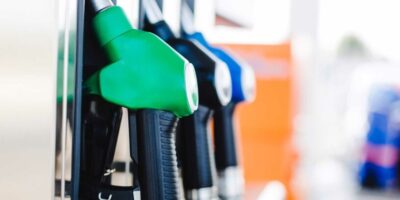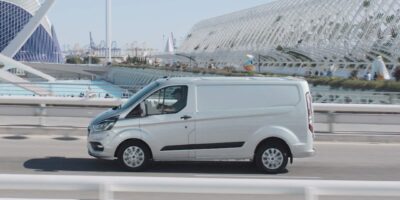The UK automotive industry today issued a last-chance plea for a zero-tariff, zero-quota trade deal that delivers for automotive as negotiations enter the endgame this week. The call comes as a new survey from the Society of Motor Manufacturers and Traders (SMMT) reveals the cost to the sector of preparing for Brexit has surpassed £735 million, with more than £235 million spent in 2020 alone.1
Most companies (67%) across the industry say they are doing everything in their control to prepare for new processes that will come into play on 1 January, with 70% securing GB Economic Operators Registration and Identification (EORI) numbers, 60% spending significantly on stockpiling and 52% employing customs agents, as companies also try to prepare for any disruption or delay to supply chains.2 However, significant gaps in the industry’s ability to plan still exist, with a lack of clarity on the nature of the UK-EU’s future relationship hampering the efforts of almost nine in 10 (86%) firms to prepare.3
Critical questions remain unanswered. With the industry’s competitiveness built on Just-in-Time deliveries, companies cannot afford any supply chain delays so clarity on the operation of key new customs systems such as the Goods Vehicle Movement Service (GVMS) and the Permission to Progress (P2P) process, is vital. Moreover, even if the UK and EU do conclude a Free Trade Agreement (FTA) from the end of 2020, there is uncertainty as to how companies will prove origin or products; if firms cannot do this then they will not be able to benefit from preferential trading terms.
No amount of preparation can mitigate the devastating impact of ‘no deal’, with this outcome – or even an unworkable deal – costing the UK automotive sector up to £47 billion in lost trade in cars and vans alone over the next five years.4 The industry must have a deal, and one that delivers zero tariff, zero quota trade with highly ambitious rules of origin provisions and a phase-in period that allow businesses time to adjust. Failure to achieve these requirements would, for the auto sector, be the equivalent of no deal at all, and compound the impact of the coronavirus crisis – itself already costing the UK sector some £27.5 billion in lost car production and sales.5
Mike Hawes, SMMT Chief Executive, said, “As the UK-EU FTA negotiations enter the endgame, now is the time for both sides to deliver on promises to safeguard the automotive industry. Securing a deal is absolutely critical but it cannot be any deal. To work for UK Automotive it must deliver for UK products and that means securing the right terms and conditions that allow our exports – now and in the future – to be zero tariff and zero quota trade. A deal that failed to achieve this would be the equivalent to no deal at all, devastating jobs and slamming the brakes on the UK’s ambitions to be a world leading manufacturer and market for electrified mobility and battery technologies.â€
Automotive is one of the UK’s most valuable economic assets, worth some £78.9 billion, exporting more goods than any other sector, generating billions for the economy and supporting some 180,300 often high-skilled and high-paid manufacturing jobs in communities across every nation and region of the UK – in particular those regions hit hardest by the economic impact of the pandemic. The industry delivers an annual £15.3 billion in added value every year to the UK economy, while investing £3.72 billion in R&D.6
10 UK Automotive urgent preparedness asks
A temporary grace period for exporters of at least one year to obtain supplier declarations.
Clarity on the format of the upcoming origin declarations and the necessary supporting documents and IT processes.
Certainty on preferential origin formalities for export to the UK’s other FTA trading partners.
Guidance on valuation and origin of used products, or ‘cores’, imported into the UK for remanufacturing purposes.
Detail on the Permission to Progress (P2P) process and Goods Vehicle Movement Service (GVMS) to mitigate the risks to Just-in-Time manufacturing. If there is substantial time between a company submitting a customs declaration and receiving a P2P there is a risk the manufacturing site becomes a lorry park and production gets significantly disrupted.
Draft legislation on how UK government will handle returnables/stillages/empty packaging that was committed to back in April 2020.
Support in connecting with third party customs intermediaries.
Extend access to the £84 million customs funding to all traders to boost their customs capacity and preparedness.
Publish a full list of ports and which operating model they will use as a matter of urgency.
Significantly more operational level information from government on the workings of the Northern Ireland Protocol.
| Abbreviation | Explanation |
| EORI – Economic Operators Registration and Identification number | Businesses and people wishing to trade must apply for and use the EORI number as an identification number in all customs procedures when exchanging information with Customs administrations. |
| GVMS – Goods Vehicle Movement Service | Links declaration references together. This means the person moving goods only needs to present one reference at the frontier to prove that their goods have pre-lodged declarations. It also links the movement of goods to declarations, meaning they can be automatically arrived and departed in HMRC systems in near-real-time. The service also notifies users via software whether their inbound goods have been successfully cleared in HMRC systems by the time they arrive in the UK. |
| P2P – Permission to Progress | Once an exporter makes a declaration they must wait until Permission to Progress is granted to move the goods to the frontier. If goods are not given Permission to Progress, they must be checked by UK government at a designated location before proceeding to the point of departure. |
*Article Source http://www.smmt.co.uk








